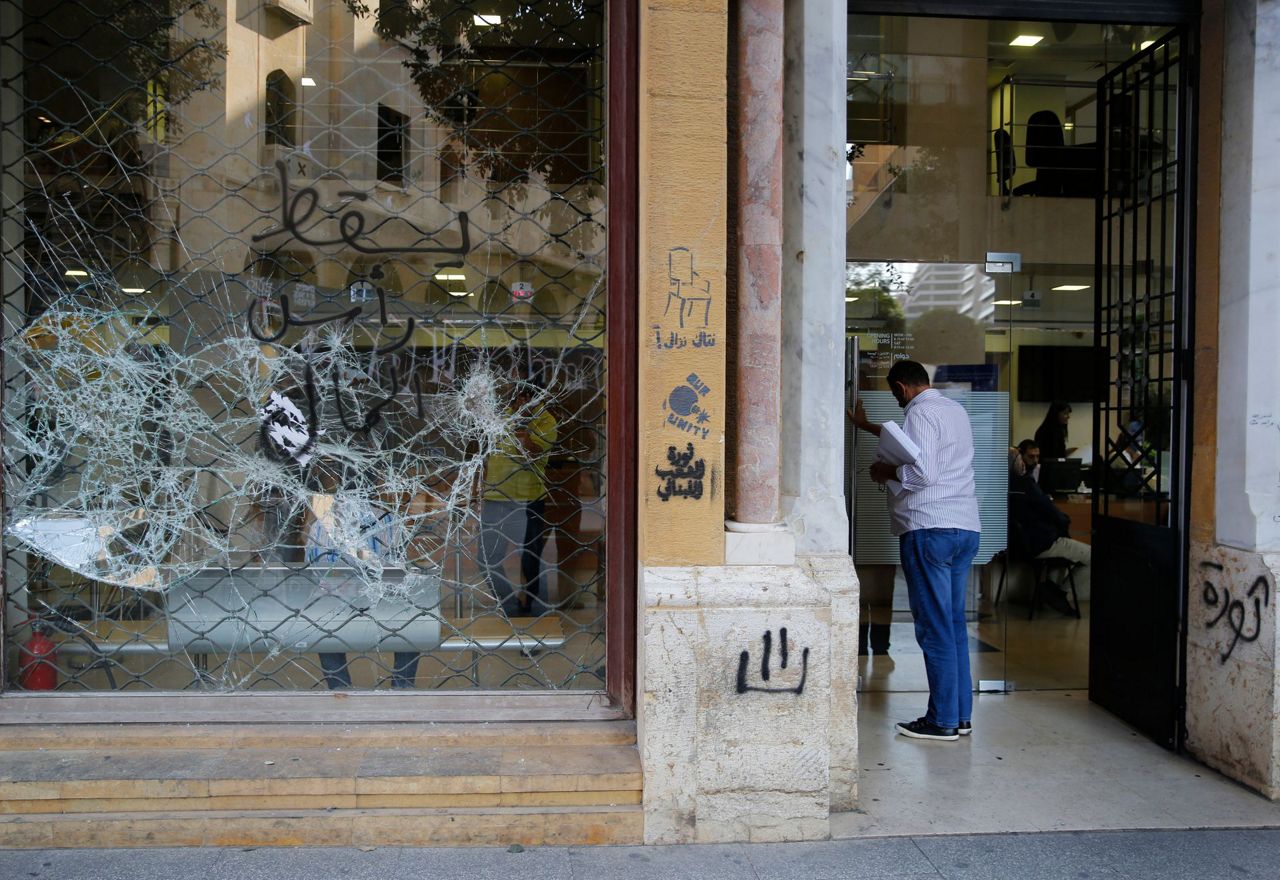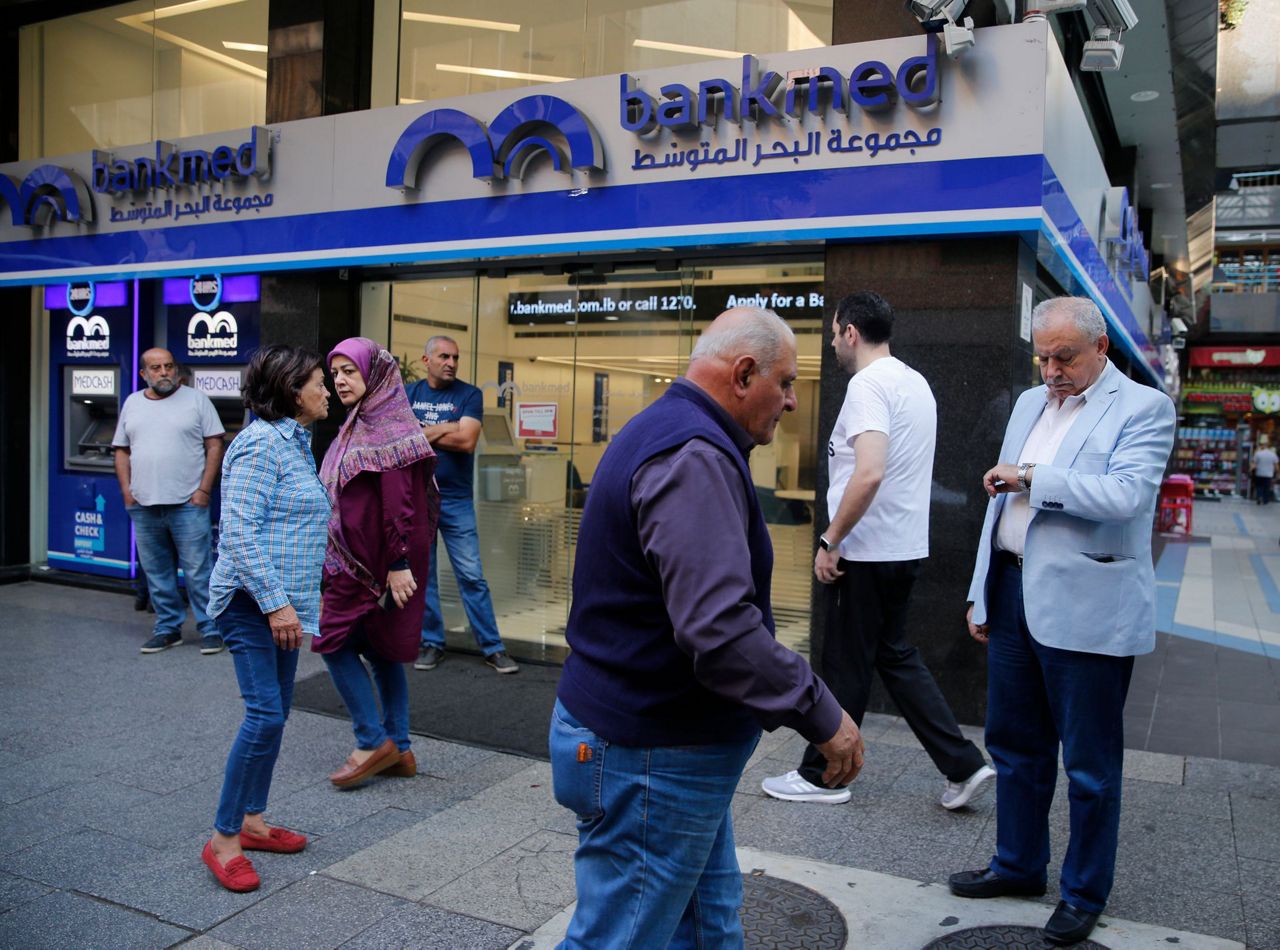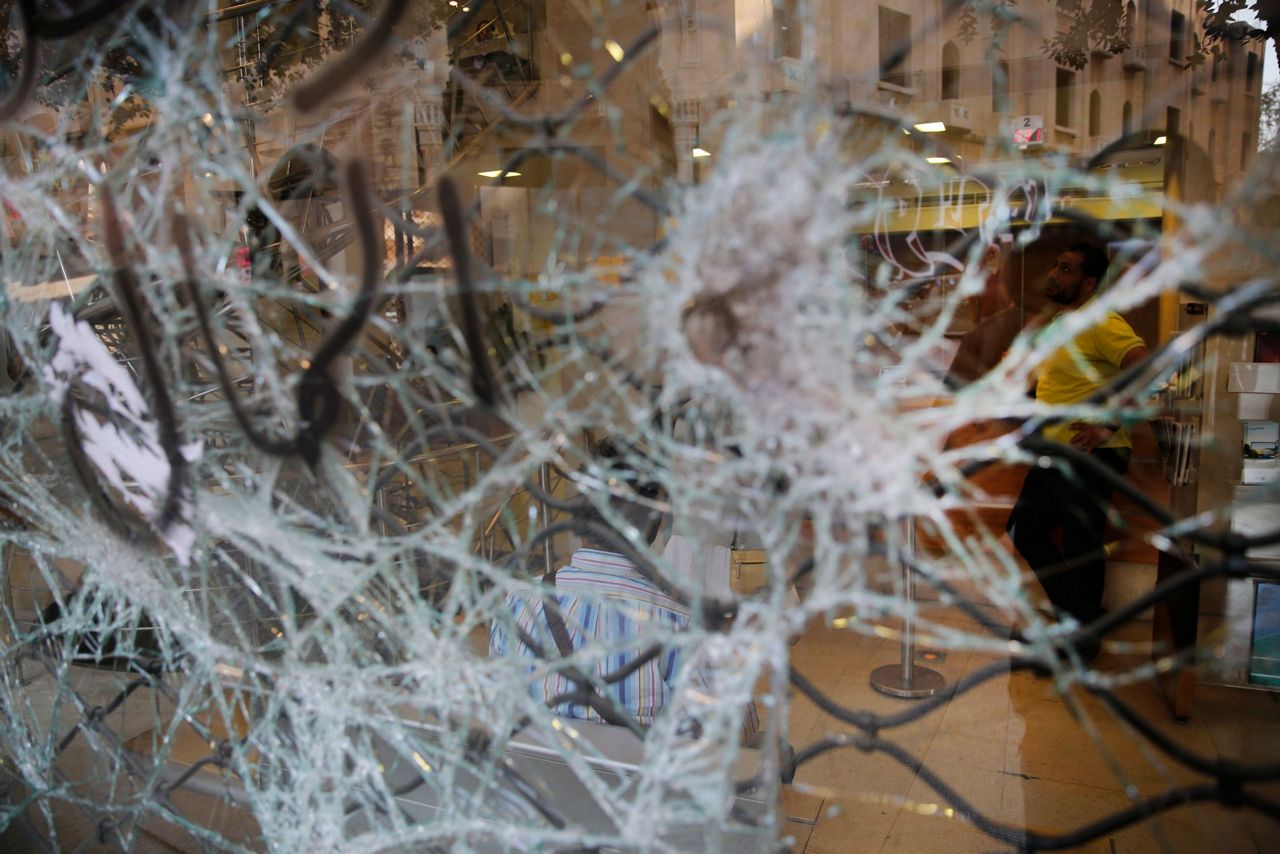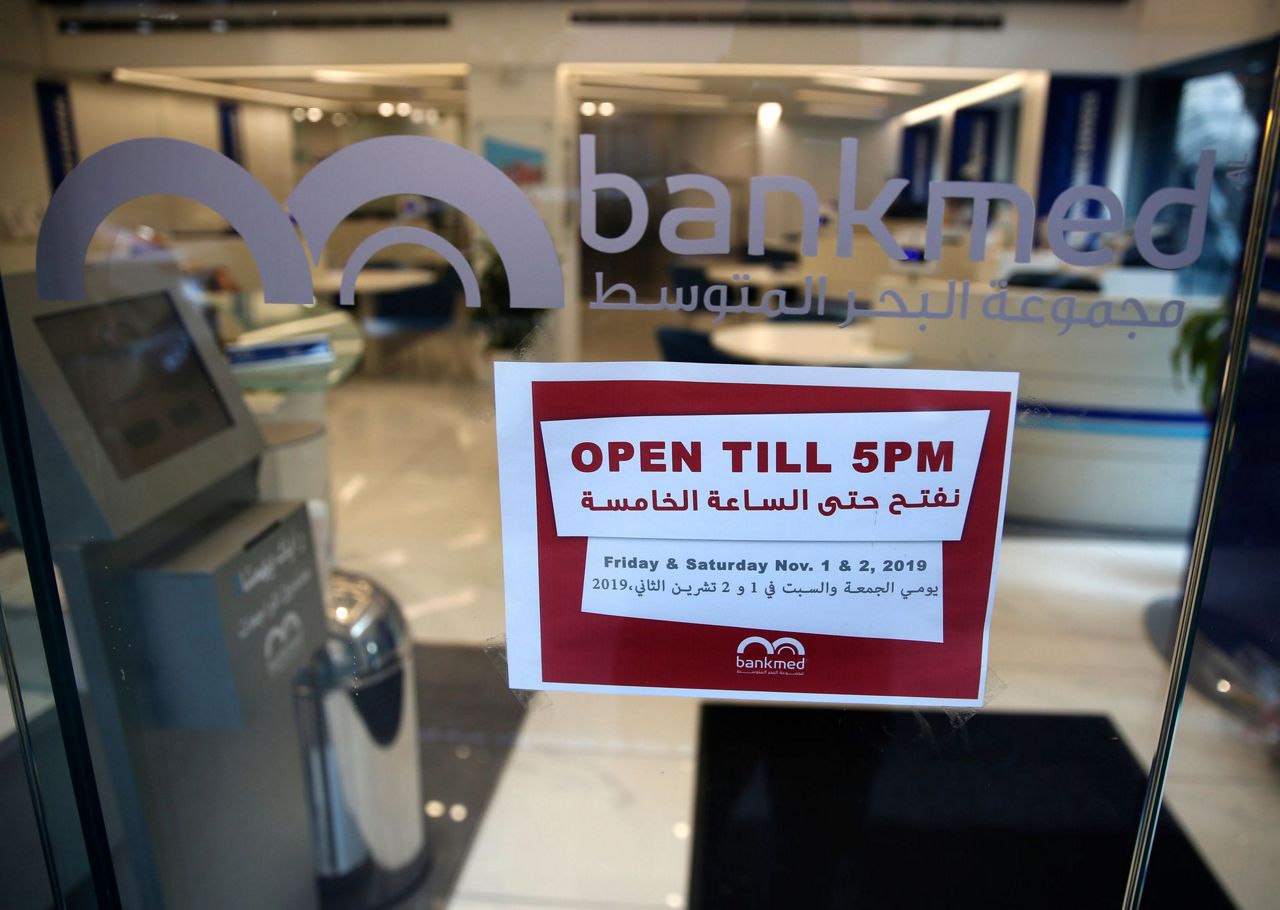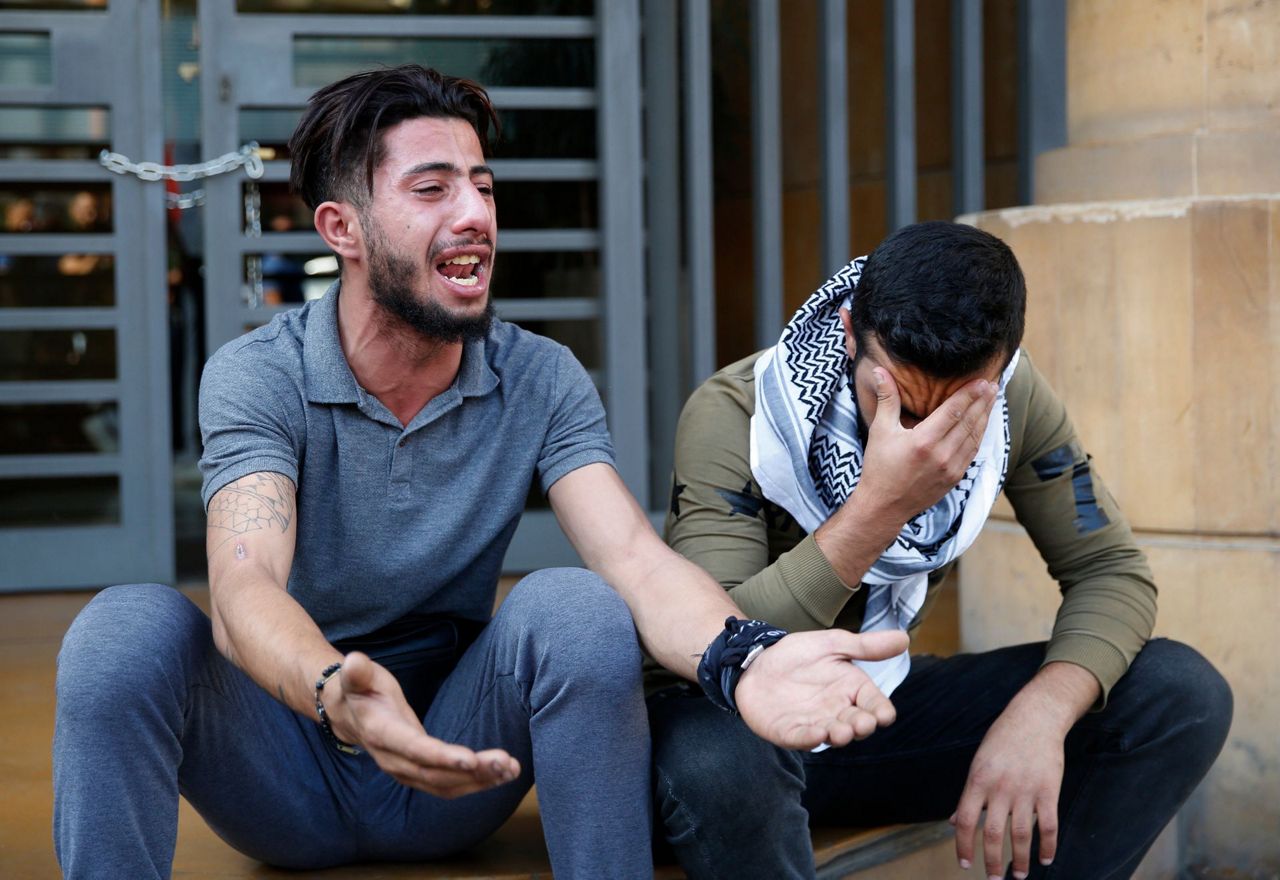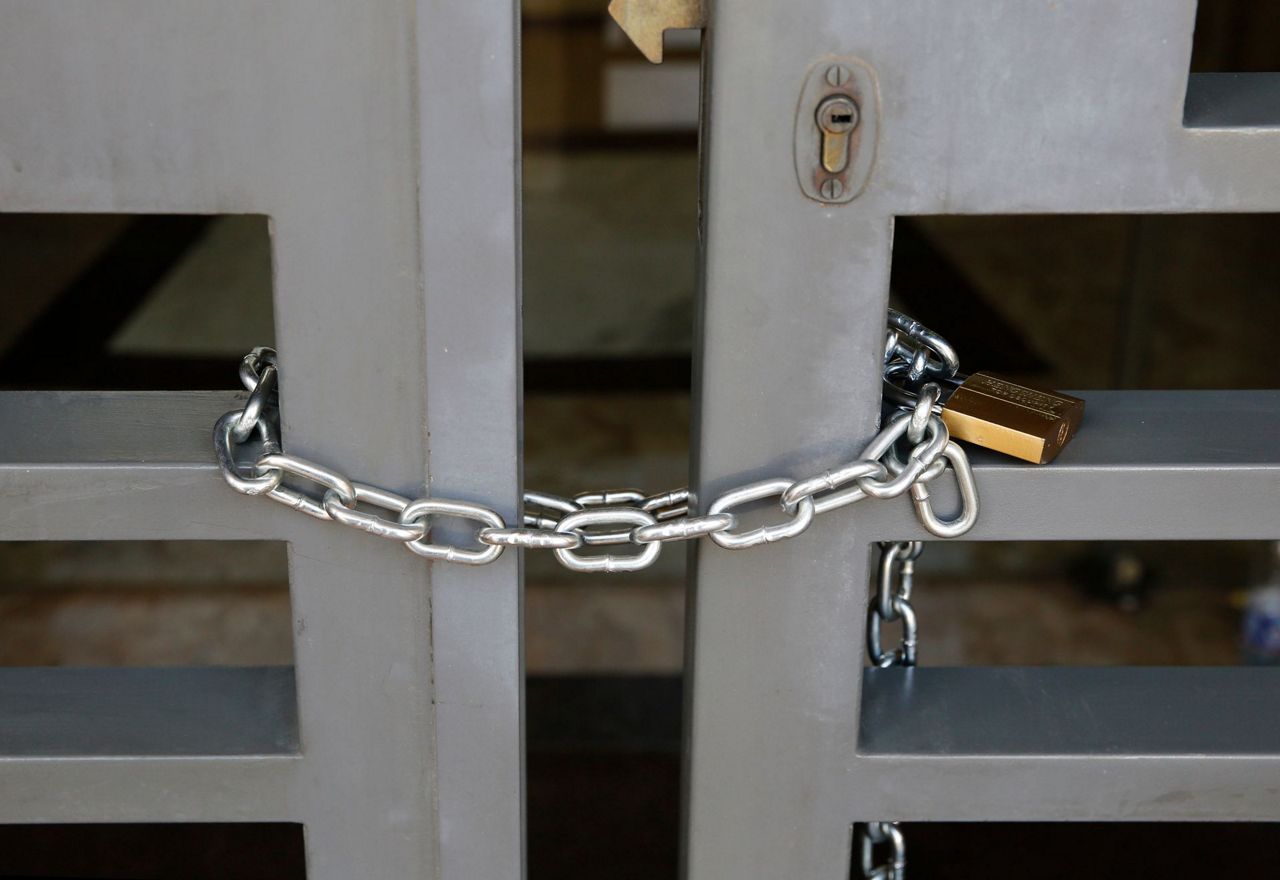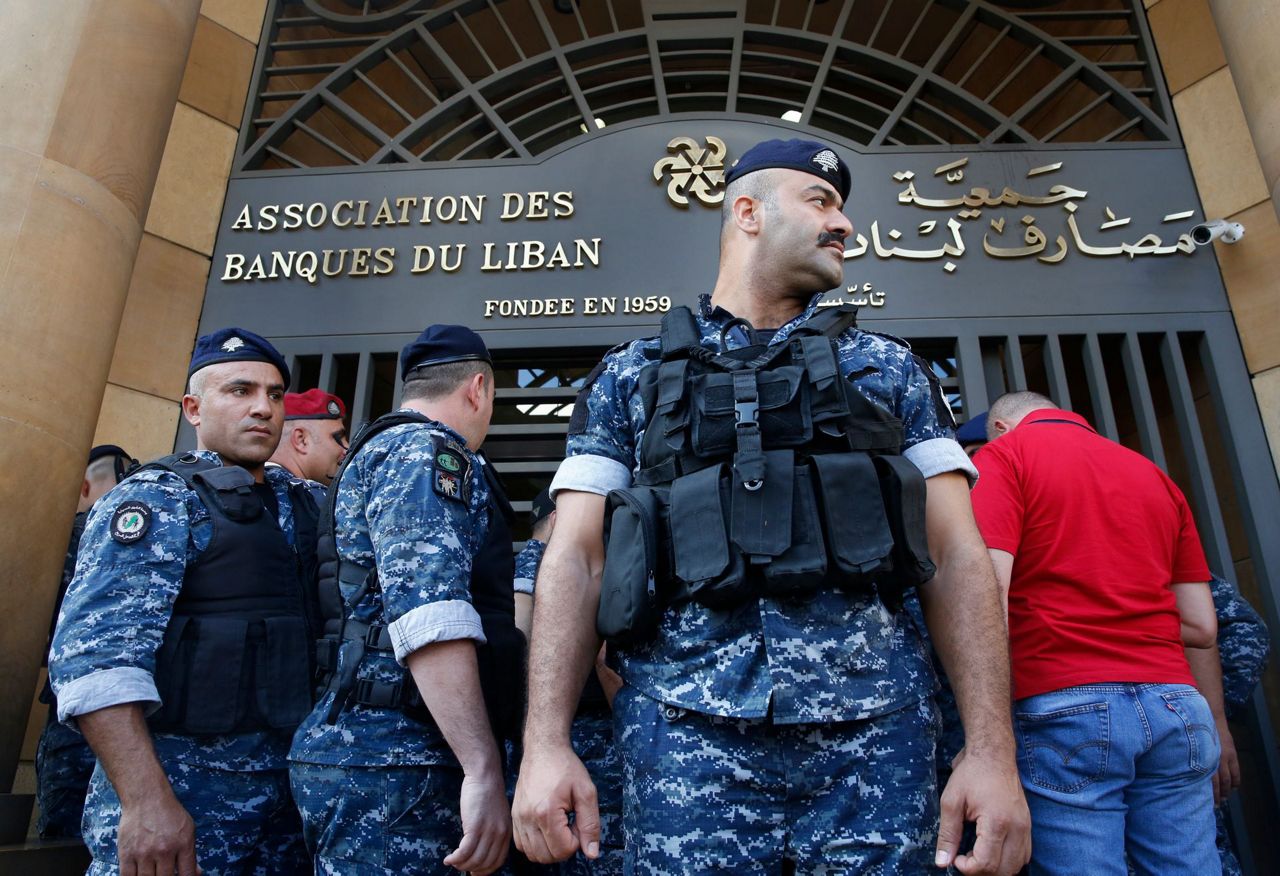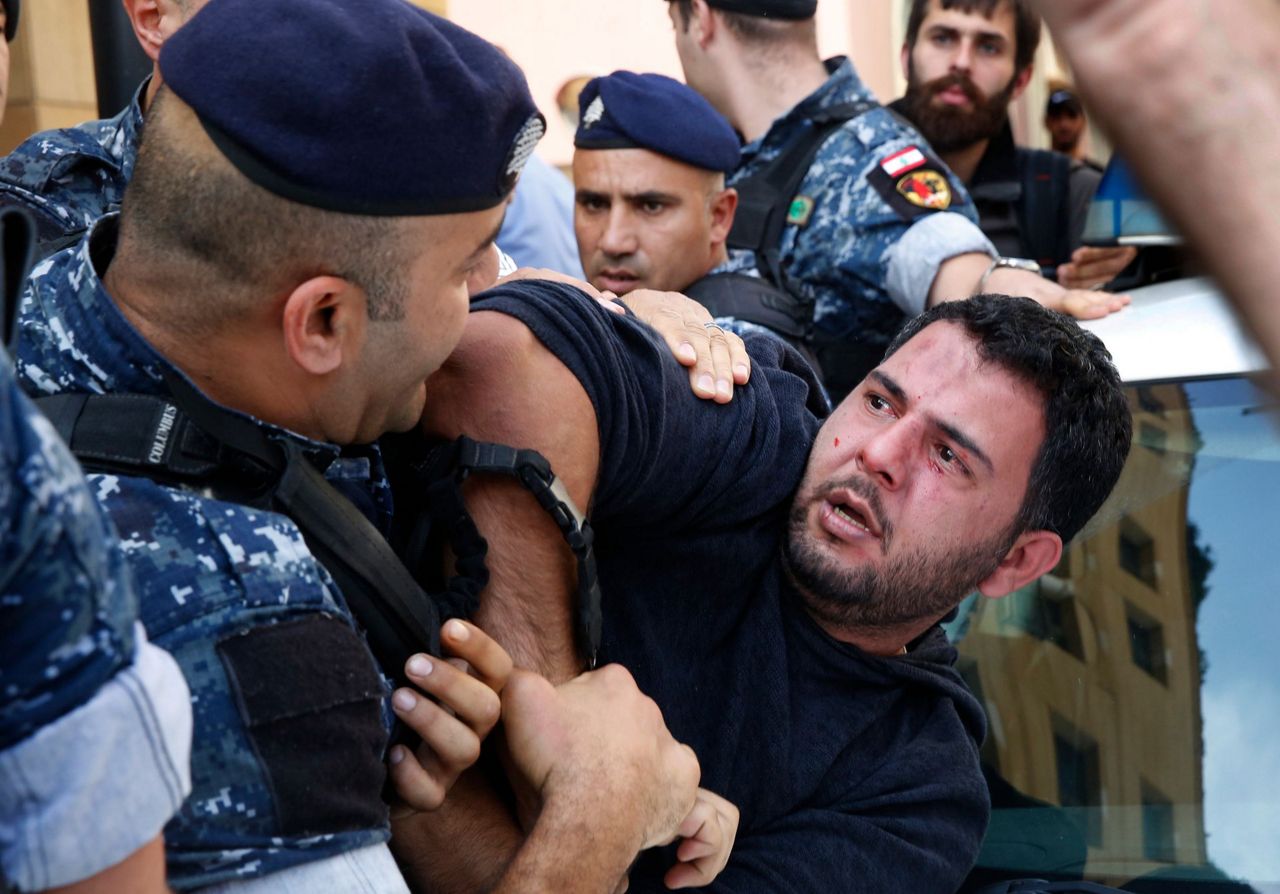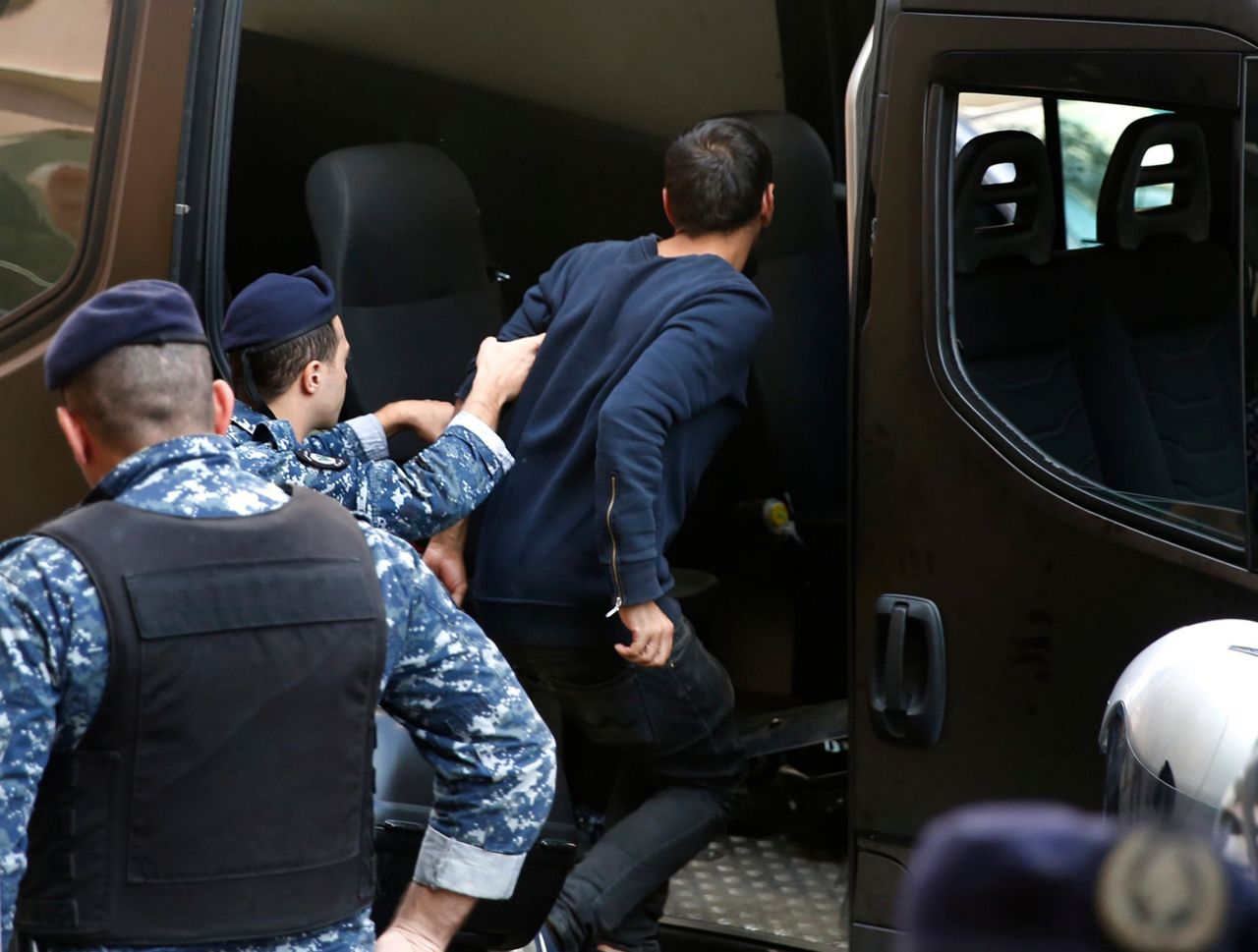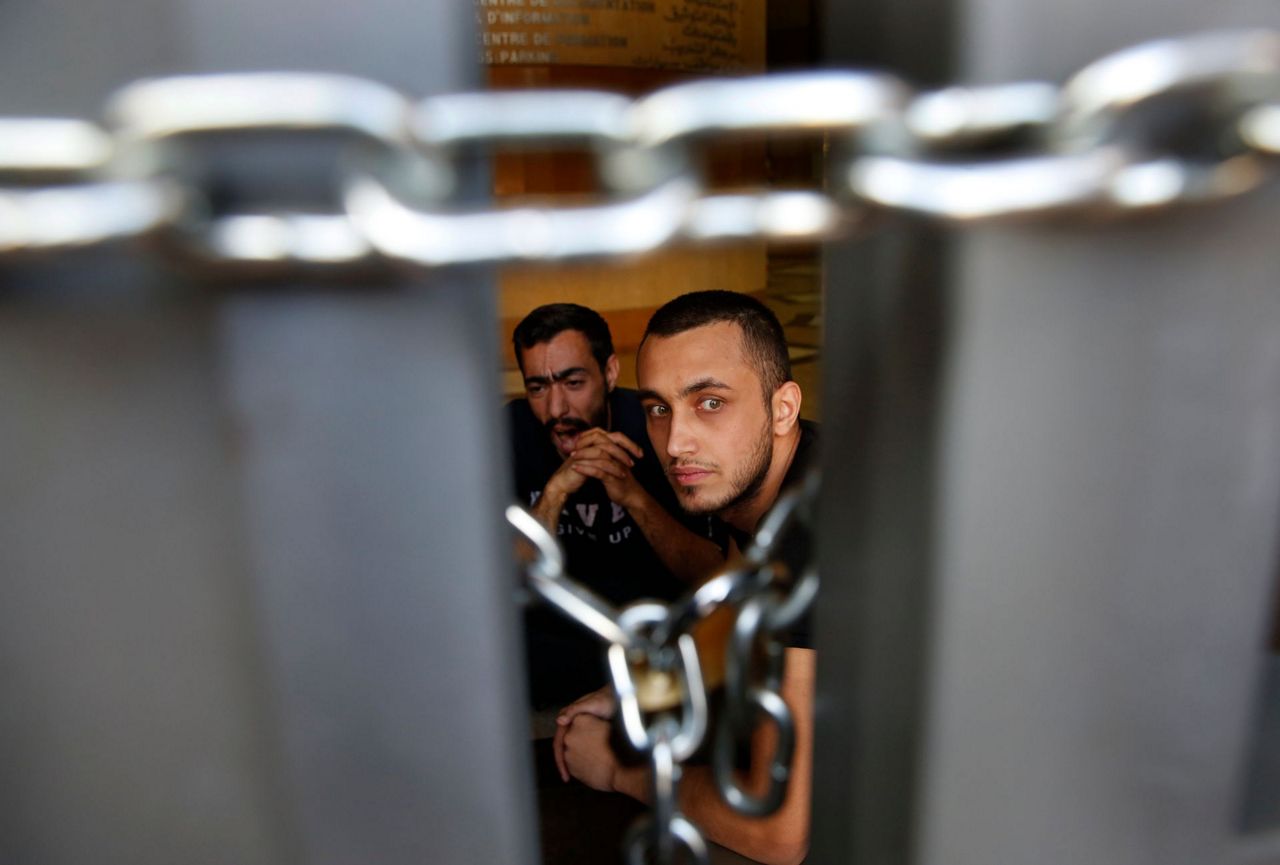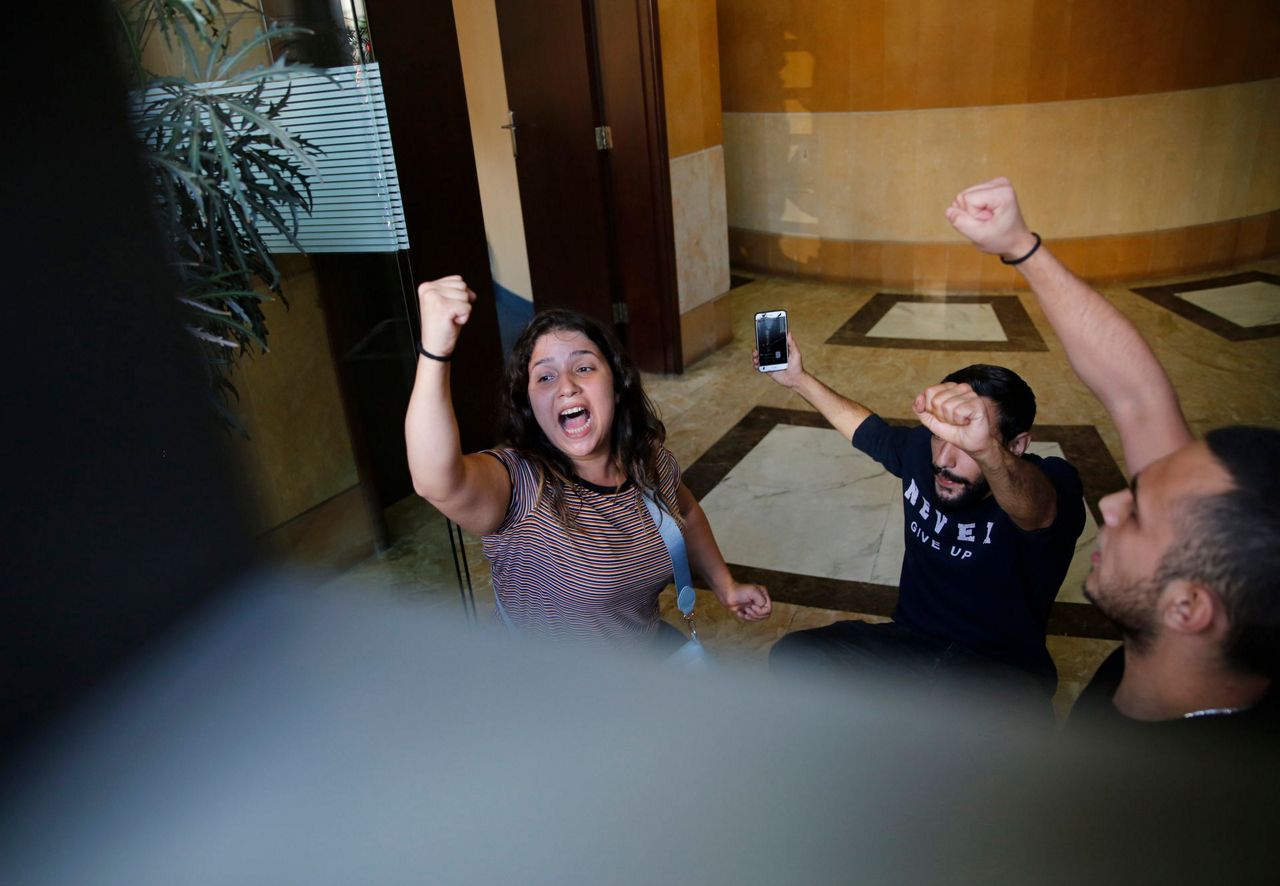BEIRUT (AP) — Lebanon's private banks reopened Friday amid boosted security after a two-week closure because of anti-government protests that have paralyzed the country.
The reopening follows Prime Minister Saad Hariri's resignation this week, a key demand of the protesters, who have blocked major roads and packed into public squares. Lebanese have been protesting since Oct. 17, demanding an end to widespread corruption and mismanagement by the political class that has ruled the country for the past three decades.
In his first comments since the government resigned Tuesday, the leader of the powerful Hezbollah group, Hassan Nasrallah, said in a speech he was against the resignation over concerns it might take a long time before a new Cabinet is formed. He added that a government should be formed quickly, a hint that Hezbollah might rename Hariri for the post again.
"The first thing that the new government should do is to listen to what the people want," Nasrallah said. He added that once formed, the government's priority should be to "build confidence with the people because this confidence is missing."
There were concerns that reopening the banks could lead many to withdraw their savings, but by midday the banks appeared to be operating normally. There were no signs of long lines or frustration at four separate bank branches in downtown Beirut, and customers leaving the branches said they were operating normally.
In other parts of the city, some local banks had people standing in line waiting for their turn, but the crowds appeared to be the size one would expect after a two weeks' closure. Also, Friday was the beginning of the month, when many employees collect their salaries at the banks.
ATM machines have continued to function throughout the crisis, though many of them stopped dispensing U.S. dollars, which have long functioned as a widely accepted second currency.
The central bank has not imposed any capital controls, which would further undermine confidence in the economy, but the private banks appear to have imposed their own preventive measures. Some banks are only allowing clients to withdraw $2,000 a week in foreign currency, and some have imposed an outright ban on transferring money abroad.
Two other bankers said there are no restrictions on such flow of money to or from Lebanon, adding that some clients are trying to access their blocked accounts before maturity, which is not allowed.
"Transfers are going as normal. There is no capital control," said Nassib Ghobril, the chief economist at Lebanon's Byblos Bank, one of the country's largest lenders. "The banks are trying to meet as much as possible all the demands of clients."
"I fully understand their frustration but it has to be vented in the right direction," said Ghobril.
Three decades after the end of the country's civil war, Lebanon still experiences frequent power outages, the water supply is unreliable and trash often goes uncollected.
The protesters have directed much of their rage at the banks, and one of the most popular chants refers to central bank governor Riad Salameh as a "thief." On Friday, four protesters entered the Association of Banks in Lebanon and placed a chain on the gate, preventing people from entering or leaving the building.
"This is the house of corruption," one of the protesters told the local Al-Jadeed TV, before police arrived and detained the three young men and a young woman.
Commercial banks are largely owned by ruling politicians and profit from holding public debt. Lebanon is $86 billion in debt, accounting for 150% of its GDP.
The bank closures have taken a toll on ordinary Lebanese, preventing employers from distributing salaries. Small businesses that need foreign currency to import products have had to do without or turn to a newly emerged black market.
The Lebanese pound has been pegged to the dollar at an official rate of 1,507 to the dollar since 1997. Exchange shops are now trading at 1,900 Lebanese pounds to the dollar, a devaluation of more than 25%.
Amnesty International said in a statement Friday that the Lebanese army used "excessive force, including live fire," to disperse protests in the northern Lebanese village of Beddawi, wounding two people last week. It added that security forces failed to protect peaceful protesters who were attacked by Hezbollah supporters in downtown Beirut.
"The Lebanese army's excessive use of force in Beddawi, as well as the security forces' failure to protect peaceful protesters, are deeply worrying and must be immediately investigated in an independent, impartial and transparent manner," said Lynn Maalouf, Middle East research director at Amnesty.
Copyright 2019 The Associated Press. All rights reserved. This material may not be published, broadcast, rewritten or redistributed.



